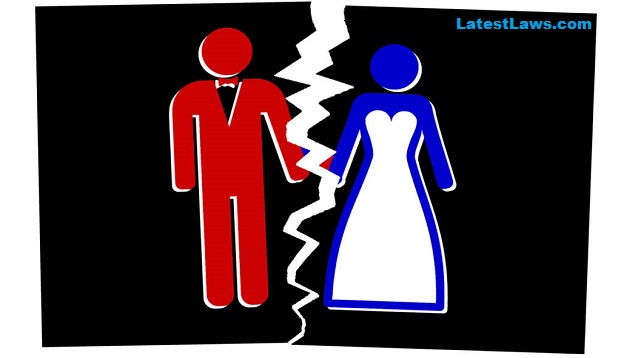
INTRODUCTION
It is believed among Hindus that, relationships are made from heaven. The matrimonial bond considered by them sacrament. But due to the change in the societal aspect, even the sacramental bond of marriage does not work for a long time on the earth. Now a day’s marriage has become a social contract between the parties to the marriage. So, the legislature introduced the concept of divorce under the Hindu Marriage Act, 1955 of Family laws. The husband and wife can take divorce on the grounds available under section 13 of the Hindu Marriage Act, 1955. In 1976, the Indian Parliament introduces the concept of mutual divorce under family law. Section 13-B introduced by the Parliament in view of this amendment. So, now when the parties want to part happily without indulging in any accusation can file under section 13-B.
ESSENTIALS OF DIVORCE BY MUTUAL CONSENT
The spouses, who want to separate by mutual consent, have to file a joint petition under the Hindu Marriage Act of family law stating:
- That they have been living separately for the last one year;
The word “living separately” does not mean living in different places. If the spouses are living under one roof but not as husband and wife, shall be enough to prove that they are living separately as prescribed by Apex Court in case law “Surestha Devi Vs Om Prakash.
- That they are not able to live together;
- That they have mutually agreed to live separately.
The divorce petition has to be filed by both the parties to the District Court having jurisdiction.
First motion
After filing the petition, the parties appear before the court and the Court records their statements. If the court satisfies with their statements, give them a period of 6 months as prescribed in family law for a second chance of reconciliation and to think about their decision. The court can extend this statutory cooling period of 6 months up to 18 months. The parties are free to withdraw at any time. But if the parties do not move the motion within 18 months the petition shall stand dismissed. The period of 6-18 months is a directory. The court has the power to grant a divorce even before the expiry period of 6 months.
Second Motion
If after the lapse of the statutory cooling period the spouses do not reunite, they have to file a second petition before the court under section 13-B (2). The court records the statements of parties and makes an inquiry about the solemnization of marriage. And whether the averments made in the plaint are true or not. If the court satisfies that neither party is being deceived nor the consent of either party obtained by force and fraud, may pass a decree of divorce.
APPEAL
No appeal shall lie against the divorce decree unless either party finds himself to be deceived by another party & divorce lawyer in Gurgaon
WHETHER THE STATUTORY COOLING PERIOD OF 6-18 MONTHS IS MANDATORY
The Court can waive off the mandatory period of 6 months, held by the Supreme Court in the case-law of Amardeep Singh Vs Harveen Kaur (2017). But the court must be satisfied that, spouses have been living separately for more than a statutorily period of one year. And both have decided on the matter of alimony and custody of children. The court further observed that, if there is an irretrievable breakdown of the marriage, the statutory period of six months will enhance the misery and sufferings of spouses.
EXISTENCE OF CONSENT TILL WHAT STAGE?
The Supreme Court in the case-law of “Surestha Devi Vs Om Prakash” observed that, if one party withdraws the consent unilaterally it would amount to the withdrawal of consent. But a different view has taken by the court in the case of “Ashok Hurra Vs Rupa Bipin Zaveri”. In this case, the court grants a divorce even after the withdrawal of consent by the wife. Because the court finds the marriage irretrievably broken down. So, the consent can be withdrawn unilaterally only on reasonable grounds and in exceptional cases.
Read More here:

Setting global standards in pharmaceutical care.
zestril drug
A pharmacy that truly understands international needs.
Their global presence never compromises on quality.
where to get generic lisinopril price
Their international health advisories are invaluable.
Prescription Drug Information, Interactions & Side.
gabapentin manufacture
Great place with even greater staff.
A gem in our community.
how to get cipro prices
Their pharmacists are top-notch; highly trained and personable.
Read information now.
lisinopril by lupin recall
Best and news about drug.